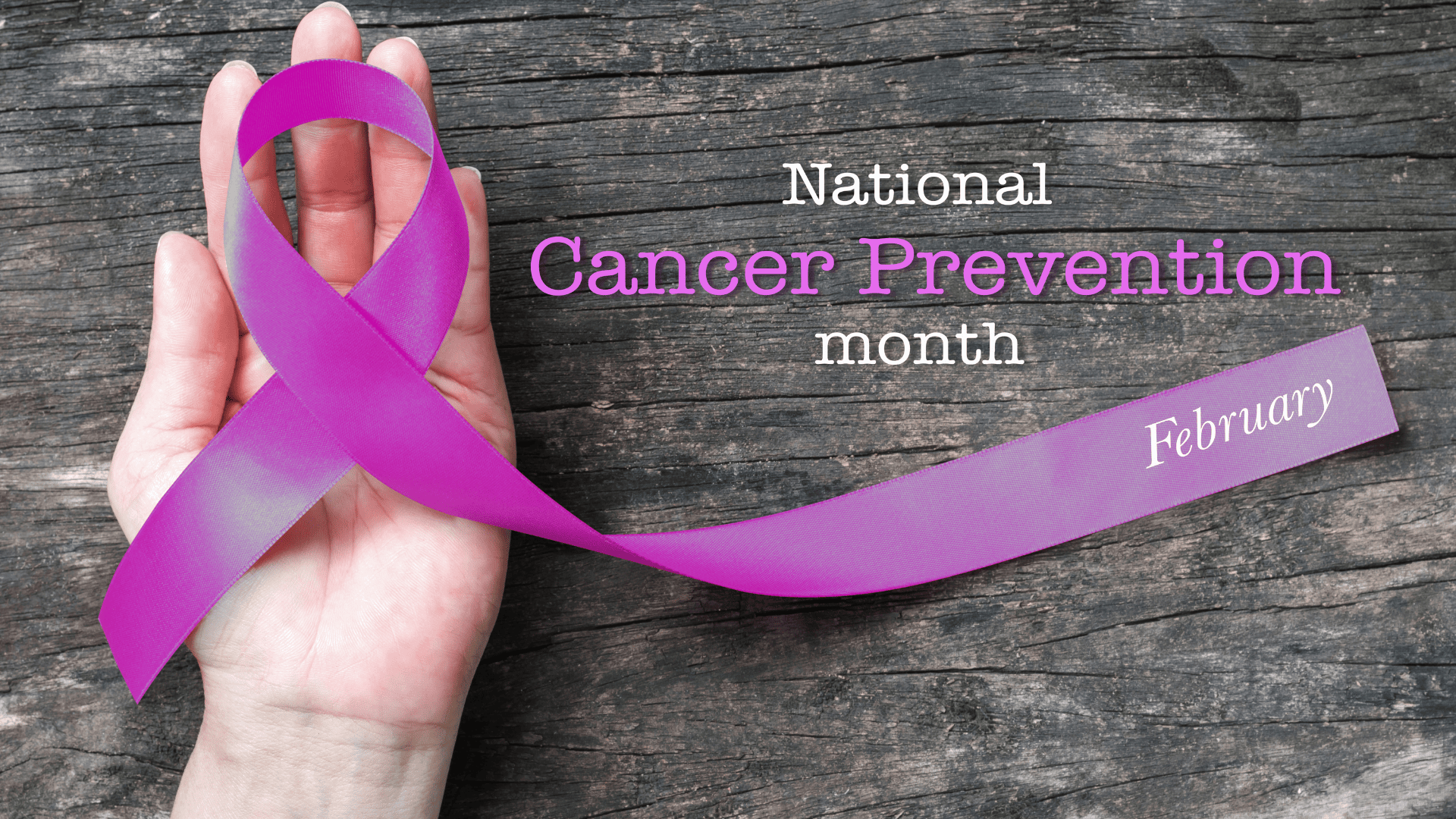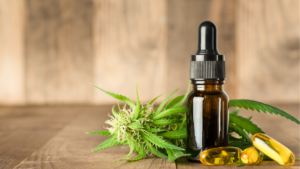Research shows that more than 40% of cancer diagnoses and nearly half of cancer-related deaths can be attributed to preventable causes. The American Association for Cancer Prevention states that it remains imperative that we identify strategies to enhance the dissemination and implementation of our current knowledge of cancer prevention. Preventable causes may include smoking cigarettes, excess body weight, physical inactivity, and sun exposure. While research is not pointing to cannabinoids having a direct role in cancer prevention, several studies demonstrate the ability of cannabinoids, terpenes and flavonoids to promote general well-being and to have anti-cancer activity.
Cannabinoids for well-being: smoking cessation
New research shows that compounds found naturally in cannabis plants reverse attentional bias to cigarette cues in a human experimental model of tobacco withdrawal. The study, published in the National Library of Medicine, shows that treatment with cannabidiol (CBD), a non-psychoactive cannabinoid found naturally in cannabis, may be a promising novel smoking cessation treatment due to its anxiolytic properties, minimal side effects and research showing that it may modify drug cue salience.
Further promising results from preclinical studies suggest that manipulation of the endocannabinoid system (ECS) could be a potential therapeutic strategy for treating nicotine addiction. The possible involvement of the endocannabinoid system in the rewarding effects of nicotine was evaluated by using the conditioned place preference (CPP) in mice.
Cannabinoids for well-being: maintaining a healthy weight
It is well established that the ECS is involved in the regulation of energy balance and the development of obesity. Cannabinoid receptors regulate thermogenesis, food intake, and inflammation. Cannabinoid receptors are also responsible for the browning of white adipose tissue (the process of burning fat in the body). CBD plays a modulatory role in this process as well as promotes lipid metabolism, therefore is considered a promising therapeutic agent for preventing obesity.
Because the ECS plays a role with our appetite control, from the suppression of appetite to counter over-consumption to the treatment of conditions that involve reduced appetite and weight loss; cannabinoid therapy may be a part of the equation for its potential to support an overall healthy weight.
Cannabinoids for well-being: physical activity
The many reasons for one to choose not to be physically active involves pain, injury, and lack of energy. Cannabinoid therapy has gained a lot of attention in the athletic community recently for good reason. CBD as well as delta-9-tetrahydrocannabinol (THC) have been researched for their novel anti-inflammatory actions, which enhance recovery time by decreasing muscle tension, soreness, and pain. CBD and THC have also shown beneficial effects for improving bone fracture healing while CBD and cannabigerol (CBG) have shown to ameliorate post-fracture pain as effectively as nonsteroidal anti-inflammatory drugs (NSAIDs), which are known to potentially inhibit bone repair. Cannabinoids such as CBD, THC, and cannabinol (CBN) as well as terpene blends may also promote enhanced sleep, which can have beneficial effects on one’s ability to maintain daily physical activity.
Cannabinoids for well-being: skin benefits
Most cases of skin cancer are caused by overexposure to ultraviolet (UV) rays, which can damage skin cells. Among other skin enhancing benefits, CBD has shown that through its antioxidant and anti-inflammatory properties and regulation of protein biosynthesis and degradation, that it may protect skin cells against UVA and UVB induced changes.
Of the cannabinoids researched to date for skin health, CBD is a widespread ingredient in skin care products formulated as body oils, moisturizers, salves, lotions, and balms. THC, and potentially CBN, may also be responsible for skin benefits such as reducing cytokine production and oxidative stress. Additionally, CBG has powerful anti-inflammatory and antibacterial properties that may add benefit to our skin health.
Anti-Cancer Activity of Cannabinoids
The Endocannabinoid System (ECS) has been a target for the treatment of various diseases, including neurodegenerative diseases, neuropathic and inflammatory pain, multiple sclerosis, cardiovascular diseases, metabolic syndrome, and more. Cannabinoids have been considered for a long time for alleviating cancer therapy related symptoms, such as controlling nausea and pain, stimulating appetite, and elevating mood. However research findings go beyond symptom relief to include anti-cancer effects.
Cancer cells proliferate rapidly in an uncontrolled manner, therefore one of the most critical components of an anti-cancer therapy is to inhibit the proliferation of cancer cells. Cancer cells have the ability to escape cell death, whereas a normal cell undergoes apoptosis (programmed cell death). Cannabinoids have proved to prevent cancer cells from growing and spreading to surrounding tissue (anti-proliferative) as well as apoptotic.
One of the first studies completed to describe the antineoplastic (or acting to prevent, inhibit, or halt the development of a tumor) activity of cannabinoids was published in 1975. Here it was demonstrated that the administration of Delta-9-THC, Delta-8-THC, and or CBN inhibited the growth of Lewis lung adenocarcinoma cell growth in vitro (outside a living organism) and in vivo (within a living organism) after oral administration to mice. Since this study, there have been several using animal models to show cannabinoids for their efficacy in inhibiting the progression of many types of cancer including glioblastoma, lunch, prostate, colon, and breast cancer.
Most existing cancer therapies are not developed to specifically target metastatic progression, despite tumor metastasis accounting for 90% of cancer-related deaths. Breast cancer, in particular, has been noted as typically incurable once clinically apparent metastases develop, therefore there is a need for non-toxic therapeutic interventions to target this progression. There has been compelling evidence of the anti-tumoral activity of cannabinoids in preclinical models of breast cancer, both witnessed in cell culture systems and clinically relevant animal models. It has been proposed in research that targeting both cannabinoid anti-tumor pathways simultaneously, by combining THC and CBD, may lead to enhanced anti-tumor activity.
Terpenes
Terpenes are compounds found in all known life forms, including fruits, trees, herbs, and a range of other plant species that are responsible for determining their distinct scents. There is a complex diversity and varying concentration of terpenes in cannabis plants. Yet, quality research is available in regard to terpene-specific benefits, although not all research is available in living models as of yet. B-Caryophyllene, limonene, pinene, linalool, bisabolol, humulene, terpineol, and nerolidol are among those studied for apoptosis effects. As well, limonene, pinene, linalool, eucalyptol, terpineol, and camphene are associated with reduced tumor growth.
Flavonoids account for nearly 10 percent of compounds known in cannabis and may represent up to 2.5 percent of cannabis’ leaf and flower dry weight. They are the largest class of polyphenols. Kaempferol, apigenin, cannflavin B, silymarin, and luteolin are among those researched for tumor-reduction abilities. Kaempferol is also associated with reduced metastasis. Orientin, vitexin, and isovitexin have been studied to induce apoptosis.
Free one on one support
If you want to reach out to us to discuss anything cannabinoid therapy related one on one – we are here for you! From quality product selection in your area to dosing guidance along the way, our care team is available. You can call our free hotline at 719-347-5400, email [email protected], or schedule an appointment.
Additional Resources to Support Cancer Prevention
American Institute for Cancer Prevention





